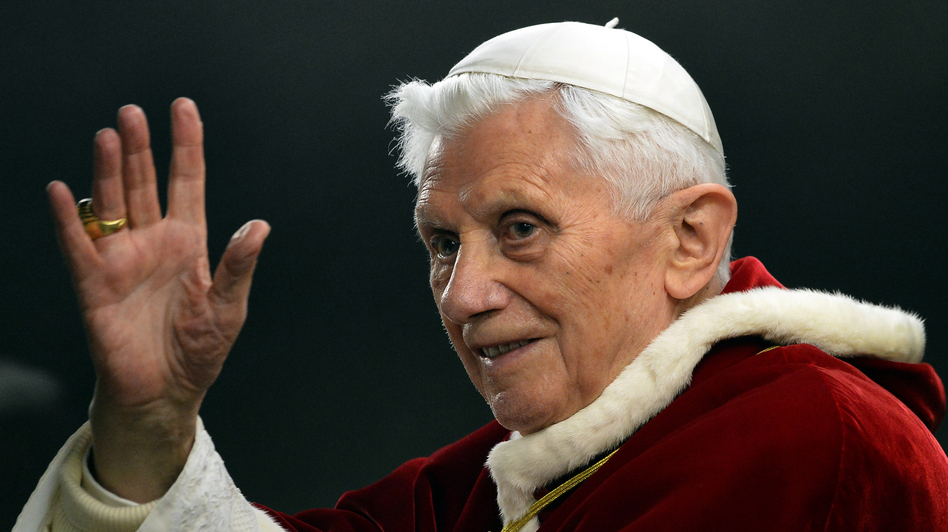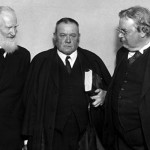Two days ago, on Ash Wednesday the faithful all over the world conducted their business with an ashen cross on their foreheads to remind them that from dust we were made, and to dust we shall return. This is a jarring and almost grotesque practice to a culture where youth and vitality are purchased at a high price, and embargoes against discussing death are one of the only social taboos remaining. Yet only a few days prior, on February 11, the world was given an even more high-profile reminder of the limitations of our humanity. Pope Benedict XVI is well acquainted with his frailty, and it was a deep knowledge of that frailty that caused him to be the first Roman Pontiff to resign his office willingly in over 700 years.
This was aptly described as “a shock,” and rightfully so, though for different reasons than those for which we are most often shocked today. Scandal rarely shocks us anymore. Our collective memory has no dearth of celebrities, politicians, and athletes who have, through some personal foible, fallen from grace and forfeited their once enormous power and influence. These have become so numerous as to be banal. What has truly scandalized the world this week was the resignation of Pope Benedict XVI not for an illicit love affair or a lurid conflict of interest, but simply because he recognized his own frailty.
In his resignation statement, Benedict said, “[I]n order to steer the ship of Saint Peter and proclaim the Gospel, both strength of mind and body are necessary, strength which in the last few months, has deteriorated in me to the extent that I have had to recognize my incapacity to adequately fulfill the ministry entrusted to me.” That such a beloved pontiff would make such a statement shocked those inside the Vatican, but to those outside of the Christian faith, the most shocking thing that there simply was no attendant scandal. Media commentators in the early hours after the announcement speculated about possibility ulterior motivations for the resignation, and op-ed pieces ranged from the restrained to the embarrassing in their analysis and their revisiting of the unaddressed blemishes on the visage of the Church, from sex abuse scandals to financial scandals. But in the end, it was Pope Benedict’s explanation that was most insightful: from dust he was made, and to dust he will return.
This is not to downplay or minimize the significance of those scandals. They mar the testimony of the Roman Catholic Church and obstruct the proclamation of the gospel, and therefore ought to grieve the faithful within the Church even more than they do the observers outside of it. The remaining corruptions of the Vatican are deeply troubling, doubly so because of their long pedigree. The story recounted by Boccaccio in his Decameron about Abraham, the Jewish merchant, who visits Rome in curiosity of converting still rings true. His Christian friend Jehannot despairs at the lost possibility of Abraham’s conversion when Abraham “goes to the court of Rome and sees the iniquitous and foul life which the clergy lead there.” Yet Abraham returns, desirous to receive Baptism and the Eucharist, and explains his decision thus:
“To the best of my judgment, your Pastor, and by consequence all that are about him devote all their zeal and ingenuity and subtlety to devise how best and most speedily they may bring the Christian religion to naught and banish it from the world. And because I see that what they so zealously endeavor does not come to pass, but that on the contrary your religion continually grows, and shines more and more clear, therein I seem to discern a very evident token that it, rather than any other, as being more true and holy than any other, has the Holy Spirit for its foundation and support.”
Boccaccio’s hyperbole notwithstanding, the flaws of today’s Vatican provide undesired fodder to the Roman Catholic Church’s critics. In addition to furthering the New Evangelization, attempting to revitalize the Church in the West, and guiding an emergent, newly-Christian Global South, the next pontiff would do well to make clear his intentions to address and resolve these problems.
Yet Benedict’s retirement is still without scandal, an anomaly among world leaders. His retirement plans are even more shocking. Descending from one of the most powerful positions in the world, Joseph Ratzinger will not take the desk of talk show or be the face of a lucrative new advertising campaign; he will not make millions from a book or movie deal. Instead, he backs quietly out of the public and international eye in order to be “hidden to the world,” a retirement spent in solemn prayer in a Vatican convent. Such a decision, soberly and freely made, itself embodies the Christian wisdom that earthly power is not to be grasped and hoarded as a supreme good of human life. Though lamentably few Christians realize the full implications of that doctrine, it is undoubtedly a doctrine that touches the major chords of Christianity, for it comes from Christ himself “who, being in the form of God, did not count equality with God a thing to be grasped, but emptied himself and took upon himself the form of a servant” (Phil. 2:6-7). Here is the humility more shocking than any scandal; here is the essence of the Christian hope.
















